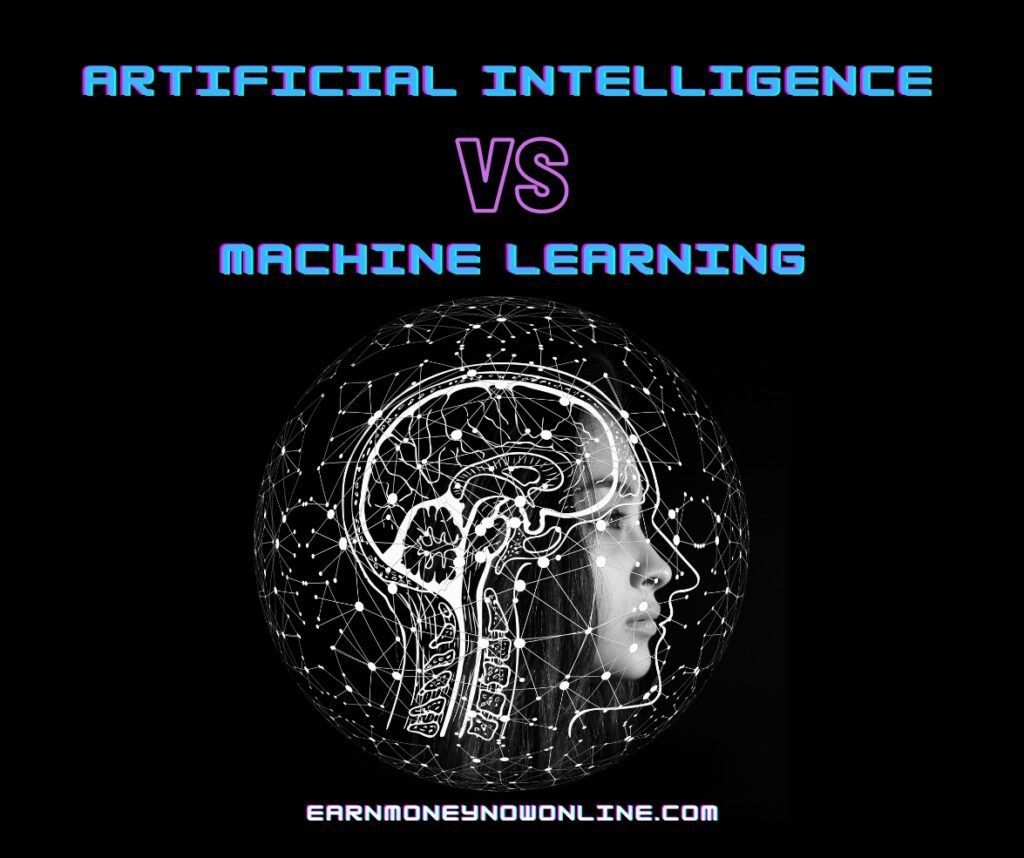Introduction
Artificial Intelligence (AI) and Machine Learning (ML) are two buzzwords that have gained significant attention in recent years. Both AI and ML are subsets of computer science that deal with the creation of intelligent machines capable of performing tasks that typically require human intelligence. While the terms are often used interchangeably, they have distinct differences. In this article, we will explore the concepts of AI and ML, their relationship, and the key differences between them. In this article, we will learn about Artificial Intelligence vs Machine Learning.
What is Artificial Intelligence?
Artificial Intelligence, as the name suggests, refers to the simulation of human intelligence in machines that are programmed to think and learn like humans. AI aims to create machines that can perceive their environment, reason, learn from past experiences, and make decisions based on available data. The ultimate goal of AI is to develop machines that exhibit general intelligence, capable of performing any intellectual task that a human being can do.
What is Machine Learning?
Machine Learning is a subset of AI that focuses on enabling machines to learn and improve from experience without being explicitly programmed. ML algorithms allow computers to analyze large amounts of data, identify patterns, and make predictions or decisions without human intervention. Unlike traditional programming, where rules are explicitly defined, ML algorithms can adapt and improve their performance over time by learning from new data.
Relationship between AI and ML
Machine Learning is a crucial component of Artificial Intelligence. ML algorithms provide the learning capabilities that enable AI systems to acquire knowledge, adapt to new information, and improve their performance. AI encompasses a broader scope, including areas like natural language processing, expert systems, robotics, and more. ML, on the other hand, focuses specifically on developing algorithms that enable machines to learn from data.

Key Differences between Artificial Intelligence and Machine Learning
While AI and ML are interconnected, there are fundamental differences between the two. Let’s explore some of the key distinctions:
1. Scope and Purpose
AI is a broader concept that encompasses the simulation of human intelligence in machines. It aims to create machines that can perform tasks requiring intelligence, such as problem-solving, decision-making, and understanding natural language. ML, on the other hand, focuses on developing algorithms that enable machines to learn from data and improve their performance over time.
2. Approach
AI can be achieved through various approaches, including rule-based systems, expert systems, and statistical methods. ML, as a subset of AI, primarily relies on statistical techniques to enable machines to learn from data and make predictions or decisions.
3. Dependency on Data
ML heavily relies on large datasets for training its algorithms. The performance of ML models improves as more data becomes available for training. AI systems, while they can benefit from data, are not solely dependent on it. AI systems can reason and make decisions even in the absence of extensive training data.
4. Human Intervention
In traditional AI systems, human experts manually define rules and logic for the machines to follow. In contrast, ML algorithms can automatically learn patterns and relationships from data without explicit programming. ML reduces the need for human intervention in creating complex decision-making systems.
5. Flexibility and Adaptability
ML algorithms are designed to adapt and improve their performance over time by learning from new data. They can detect patterns and adjust their models accordingly. AI systems, while they can learn from data, may require significant reprogramming or modifications to adapt to new scenarios.
6. Level of Complexity
AI systems aim to achieve general intelligence, which involves understanding and performing a wide range of tasks that humans can do. ML, on the other hand, focuses on specific tasks and problems, such as image recognition, natural language processing, or recommendation systems.
FAQs
Q: Can AI systems learn without human intervention?
A: AI systems can learn from data and improve their performance, but they often require human expertise in defining initial rules and frameworks.
Q: Is Machine Learning a subset of Artificial Intelligence?
A: Yes, Machine Learning is a subset of Artificial Intelligence, focusing on developing algorithms that enable machines to learn from data.
Q: Do AI systems always require large datasets for training?
A: While AI systems can benefit from data, they are not solely dependent on it. AI systems can reason and make decisions even in the absence of extensive training data.
Q: Can Machine Learning algorithms adapt to new information?
A: Yes, Machine Learning algorithms can adapt and improve their performance over time by learning from new data.
Q: Are AI and ML only applicable to computer science?
A: While AI and ML have significant applications in computer science, their concepts and techniques can be utilized in various fields, including healthcare, finance, transportation, and more.
Q: Is it possible to achieve general intelligence with Machine Learning alone?
A: Machine Learning focuses on specific tasks and problems and may require a combination of various techniques to achieve general intelligence.
Conclusion
In conclusion, Artificial Intelligence and Machine Learning are closely related but distinct concepts within the field of computer science. AI aims to create intelligent machines that can reason, understand, and perform tasks requiring human-like intelligence. ML, on the other hand, focuses on enabling machines to learn from data and improve their performance without explicit programming. While AI encompasses a broader scope, ML provides the learning capabilities that power AI systems. Understanding the differences between AI and ML is essential for leveraging their potential in various domains and unlocking new opportunities in technology and innovation.
Heard about ChatGPT? Read about it here.




















